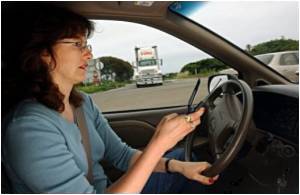
The study by technology retailer Pixmania, reveals that the average UK working day is between nine and 10 hours, but a further two hours is spent responding to or sending work emails, or making work calls.
More than 90 percent of office workers have an email-enabled phone, with a third accessing them more than 20 times a day.
Almost one in ten admits spending up to three hours outside their normal working day checking work emails, and even those without a smartphone check emails on their home computer.
Some workers confess that they are on call almost 24 hours a day, with nine out of ten saying that they take work emails and calls outside their normal working hours as well.
Nearly two-thirds say they often check work emails just before they go to bed and as soon as they wake up, while over a third have replied to one in the middle of the night.
Advertisement
"The ability to access literally millions of apps, keep in contact via social networks and take photos and video as well as text and call has made smartphones invaluable for many people," the Daily Mail quoted Ghadi Hobeika, marketing director of Pixmania, as saying.
Advertisement
"The more constantly in contact we become, the more is expected of us in a work capacity," Hobeika added.
Source-ANI









